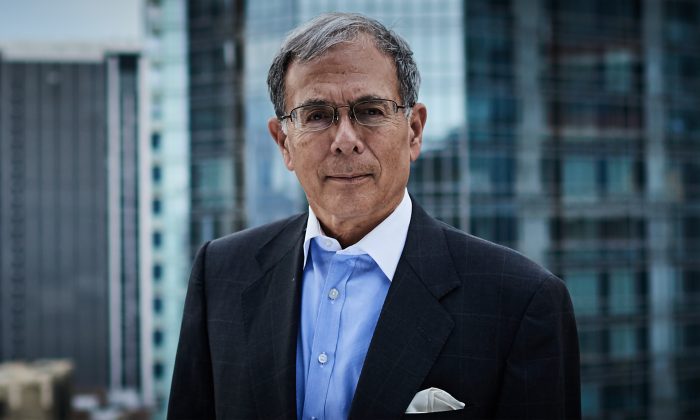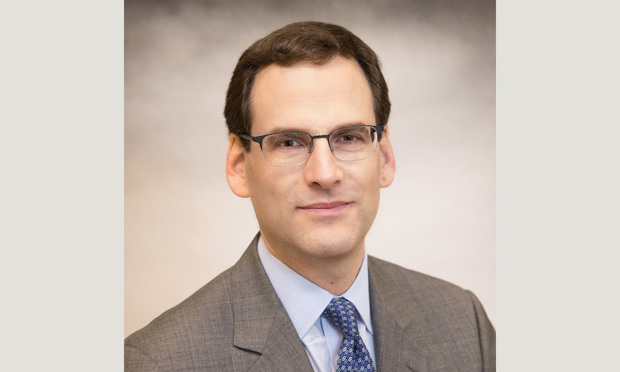
November 18, 2020 | New York Law Journal
Look to 'Optical' in Deciding COVID-19 Business Interruption CasesTo save thousands of New York business from closing their doors permanently, New York courts should look to the New Jersey case 'Optical Services USA/JCI v. Franklin Mutual Insurance Co.,' for a decision and rationale that is consistent with New York jurisprudence.
By Jeff S. Korek and Anthony Makarov
6 minute read

November 18, 2020 | New York Law Journal
'Gestalt' LawyeringIn psychology, the gestalt form of treatment looks at the entire person - their lifestyle, family history, and more in order to determine the cause of the problem. Given social distancing, our legal world is turning to more computerized interactions with clients. For lawyers, COVID-19 presents an opportunity to recognize the significant changes in our culture and how we will adapt to them.
By Thomas F. Liotti
4 minute read

November 17, 2020 | New York Law Journal
Realty Law DigestScott E. Mollen, a partner at Herrick, Feinstein, discusses "BKNY1 Inc. v. 132 Capulet Holdings," and "McCarthy v. County of Nassau."
By Scott E. Mollen
16 minute read

November 17, 2020 | New York Law Journal
Lost Cause? Foreclosing in Reliance On a Lost Note AffidavitWhen a lender purchases a loan originated by another lender, such purchasing lender will require the selling lender to deliver the original loan documents; but what happens if some of the original documents cannot be found?
By Jeffrey B. Steiner and Scott A. Weinberg
7 minute read

November 17, 2020 | New York Law Journal
NY Labor Law §240: What Is a 'Structure'?Labor Law §240 was enacted in response to the Legislature's concern over unsafe conditions for employees who worked at height-related worksites. When assessing §240 claims in New York, parties should be aware that courts interpret the word "structure" liberally and that the word itself can manifest in a multitude of ways. This article highlights some surprising examples.
By Kevin G. Faley and Andrea M. Alonso
8 minute read

November 10, 2020 | New York Law Journal
Construction Management Agreements: Defects and FailuresThis is the third in a series of articles dealing with construction management agreements. Here, the authors address construction defects and failures, specifically those arising from faulty workmanship or materials.
By Kenneth M. Block and Joshua M. Levy
6 minute read

November 09, 2020 | New York Law Journal
Second Circuit Stands Its Ground in Construing 28 U.S.C. §1782Ever since the Supreme Court in Intel Corp. v. Advanced Micro Devices, Inc., 542 U.S. 241 (2004) sanctioned a liberal interpretation of 28…
By Alexander Shapiro
10 minute read

November 06, 2020 | New York Law Journal
Back to Work: Preparing for Litigation When Returning from QuarantineAs staff begin to return to work amid continued concerns related to COVID-19, it is time to prepare for a wave of employee lawsuits stemming from such things as union efforts, unavoidable close quarters and staffing reductions. This article offers a list of some preventive measures internal teams can take to ensure their company is in the best position to minimize risk and exposure.
By Anjanette Cabrera
7 minute read

November 06, 2020 | New York Law Journal
Your Choice: Model Your Litigation, or OverpayMost law firm pitches are heavy on the lawyers' experiences and record, but leave out a really crucial part of the litigation: its resolution. This article will concern using analytics on litigation resolutions to pick the right counsel and to demonstrate a legal department's value as a profit-generating department, not just a cost center.
By Joshua Libling
8 minute read

November 06, 2020 | New York Law Journal
Trademarks and the First Amendment: Litigation TrendsThe Supreme Court has recognized the conflict between trademark law's important commercial and consumer protection functions, and the First Amendment protections for expressive works. Here, the author considers this conflict against the backdrop of a series of recent cases applying these doctrines.
By Joshua Simmons
8 minute read
Trending Stories
- 1Troutman Pepper, Claiming Ex-Associate's Firing Was Performance Related, Seeks Summary Judgment in Discrimination Suit
- 2Law Firm Fails to Get Punitive Damages From Ex-Client
- 3Over 700 Residents Near 2023 Derailment Sue Norfolk for More Damages
- 4Decision of the Day: Judge Sanctions Attorney for 'Frivolously' Claiming All Nine Personal Injury Categories in Motor Vehicle Case
- 5Second Judge Blocks Trump Federal Funding Freeze



